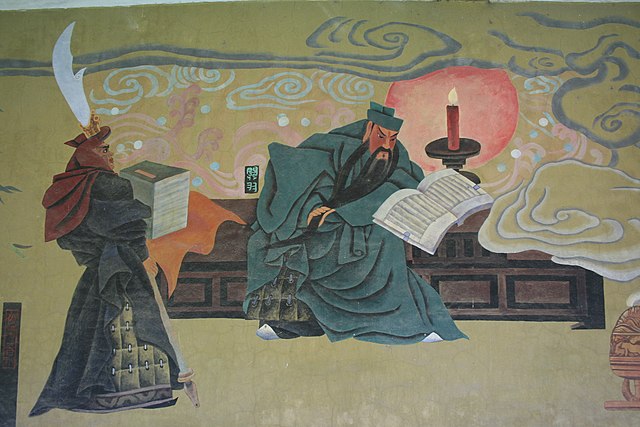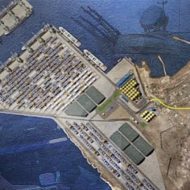The triumphant Chinese revolution in 1949 introduced new variables for the construction of its own thought. Before, the philosophy of the country had emerged from the 6th and 5th centuries BC, with It’s main but not only exponents in Confucius and Laozi. Since 1949, China’s long history is full of innovative research and opinions in search of wisdom, the value of life in society, the importance of human relationships and the moral values to sustain it. The ancient philosophical thought of China is made up of this and many other elements.
The 20th century marked the introduction of Western philosophy, particularly the ideas of Marx, Engels and Lenin, which, interpreted by Mao Zedong according to his own idiosyncrasy, gave rise to a particular paradigm that supported the beginning of the construction of socialism in China. Almost at the end of the last century, the top national leader Deng Xiaoping fused traditional Chinese thought with Marxist-Leninist ideas and the contributions of Mao, also introducing some doctrines rooted in the West to create a new body of concepts that – without comparison with any other belief or theory – support China’s current ideology, on which the society’s potential for the future is built.
Marxism-Leninism, the ideology of Chairman Mao, the Buddhist religion and up to seven philosophical schools of their own have been intertwined to build a peculiar and indigenous thought. One of those schools, with great influence today, is that of the legalists. The background of legalistic thought in ancient China comes from the studies of the teacher Guan Zhong during the 7th century (BC), who formulated practical solutions for the realization of good government, a theme that became the axis of the proposals of subsequent followers of this school.
Some later exponents of legalism were Shen Buhai, considered the first to work on the idea of law (fa); Shang Yang, who focused his work on techniques for good government (shu), and Shen Dao, whose greatest effort was aimed at searching for trends for the use of force as a basis for maintaining power, all of them in the 4th century (BC). But without a doubt the greatest exponent of legalism was Han Fei who set out to synthesize and bring together all the ideas outlined by the followers of this school, according to which the written law is the most important thing so that the State and the Prince acquire and preserve power and wealth.
In teacher Han Fei’s book, the crowning work of this school, the political ideas of the legalists are set out based on a deep knowledge of their time, detaching themselves from previous events since they considered that the incessant change of political and social circumstances forces specific analyzes in time and space and innovative methods by the rulers. In this regard, Shan Yang wrote: “When the principles that guide people become inadequate in the face of new circumstances, their evaluative standards must change. When real world conditions change, different principles must also be put into practice.”
The legalists advocated such rigid state control that, despite being staunch defenders of private property, their views left it superlatively limited in its rights. The legalistic conception of establishing a body of explicit and publicly promulgated laws to be known by all the society clashed with the practice of government based on rites and traditions. In that sense, in a contradictory way, they aimed directly at the organization and direction of the State and at political and military success rather than at legal matters themselves.
Shang Yang devoted himself especially to these matters when he played an important role as an advisor to the monarch at the beginning of the 5th century (BC), developing reforms aimed at guaranteeing the supremacy of the State and abolishing the privileges of the aristocracy. Likewise, he wrote a single code of compliance for the entire society without class distinctions, organizing the government based on a large bureaucracy that depended directly on the monarch.
For his part, through his notable work, Han Fei developed as never before some categories aimed at a better control of society and the achievement of social harmony. Among them, the most important is the “law” previously introduced by Shang Yang established as written rules and orders that the ruler uses to monitor and intervene in society, maintaining power over himself based on the effectiveness that becomes evident through two instruments of power (erbing): the application of punishments and the granting of rewards.
Many of his contributions, along with those of Confucius, amalgamate the doctrine that gave the characteristics of the Chinese empire for two thousand years. The influence of the legalists’ proposals was manifested in the ideological unity of the people and the government, the political and military unification of the territory, the importance of the economic well-being of the people as a support for the ruler, the importance of efficiency and realism in compliance of the government’s political objectives, all of them tasks present in the management of the current government.
In this framework, it is worth highlighting President Xi Jinping’s recent statement that “The path of the socialist rule of law with Chinese characteristics must be maintained with unwavering commitment.” Xi highlighted the idea to reinforce the construction of a legal system linked to the abroad to promote “high-level openness”, as well as be vigilant to “counteract external risks and challenges.”
Likewise, he drew attention to the importance and urgency of the issue, stating that the main objective of developing legal governance in foreign affairs is to safeguard the interests of the country and the people through legal methods, promote the progress of the rule of law international and foster the formation of a community of united destiny for humanity.
These ideas become extraordinarily valid when China, on the one hand, has begun a transcendental transformation of its foreign policy aimed at playing a more relevant role in international affairs. And on the other hand, they become aware that in their execution they will inevitably have to confront Western rhetoric that proposes building an “international system based on rules”, which of course are developed and accepted by the West itself.
Xi called on Chinese citizens and companies to be guided by local laws and regulations when abroad and apply them to protect their rights and interests. Likewise, he explained that efforts should be made to improve the relevant measures and regulations in such a way as to make the lives of foreigners living in China easier.
In addition, he maintained that his country should actively participate in the development of international standards, as well as the promotion of the rule of law in international relations to create an “open and transparent” system. He also mentioned the need to timely elevate to the rank of law, effective measures and mature experience of high-level opening to the outside world, such as the development of pilot free trade zones.
Finally, he called on China to make efforts to strengthen confidence in the rule of law to actively apply its unique concepts, proposals and successful practices in foreign policy. Likewise, he stated that it was necessary to promote the creative transformation and development of traditional Chinese legal culture.









Leave a Reply